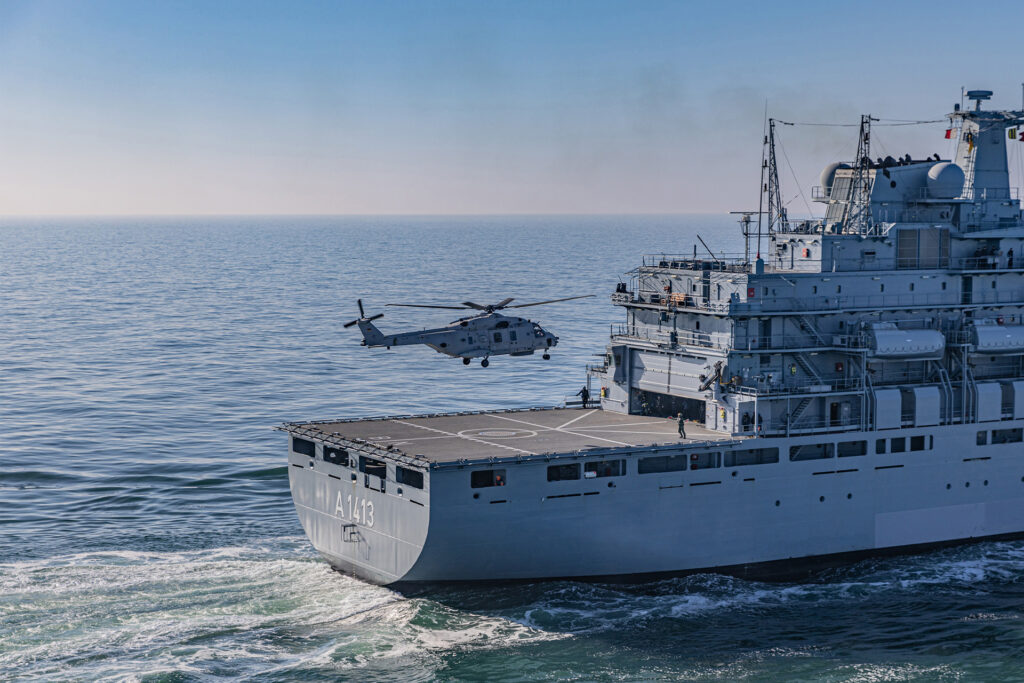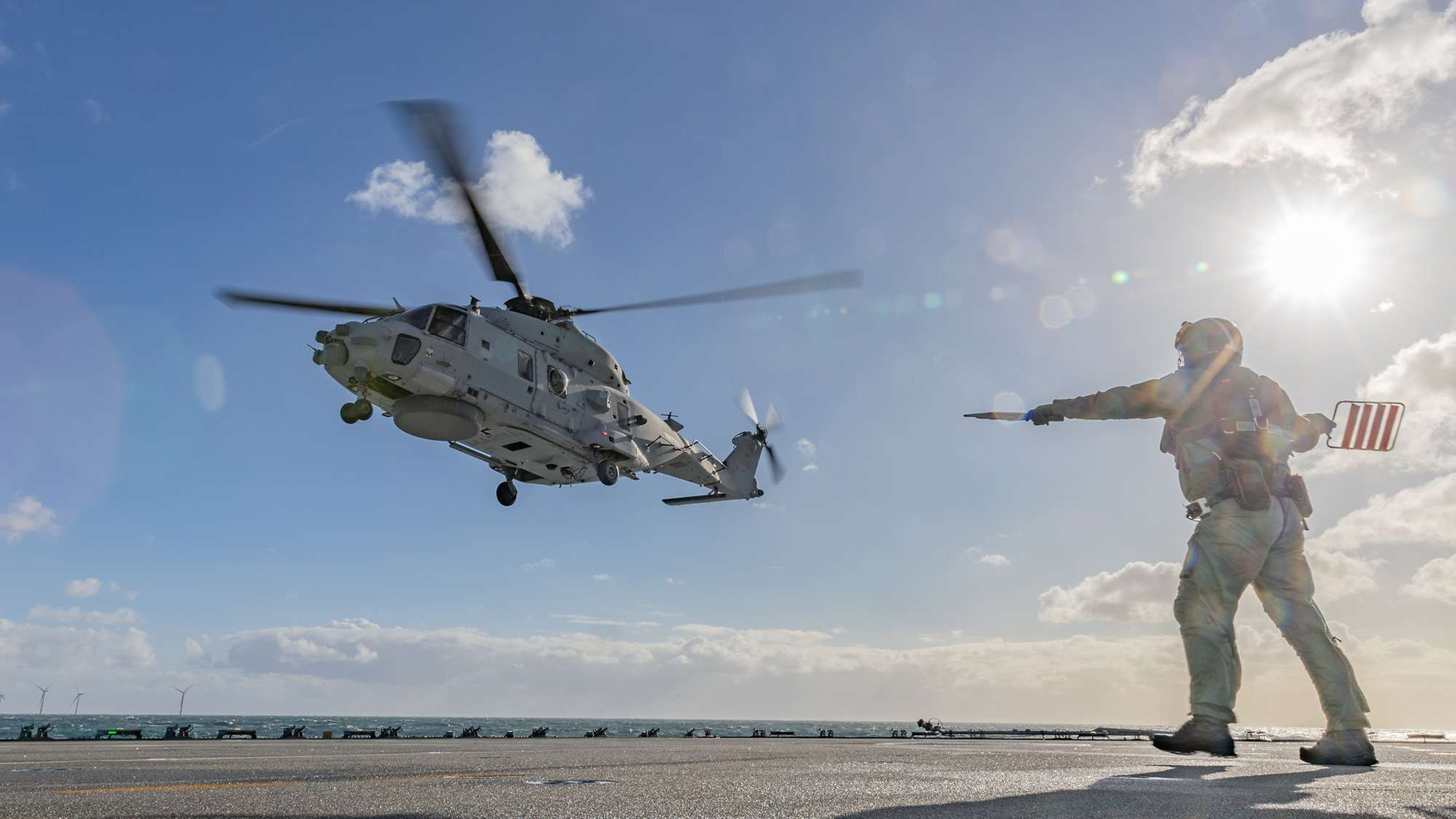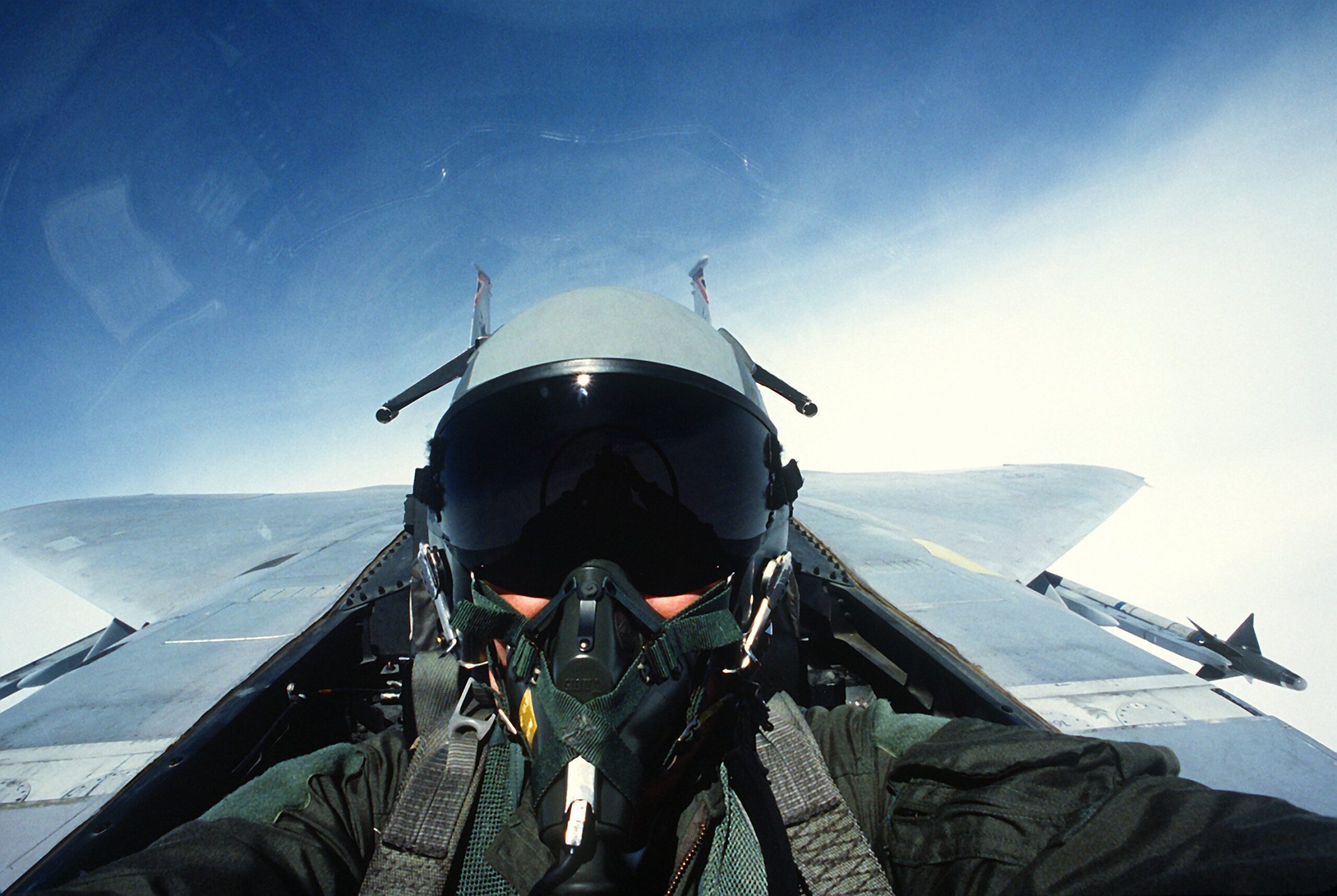In March 2023, the German Bundeswehr evaluated their NH90 Sea Lion operational capabilities on the combat support ship (EGV – Einsatz Gruppen Versorger) Bonn in the North Sea. The aim was to determine safe operational limits within which NH90 helicopters could take off and land on EGV-class ships. The “Dutch” method used for that purpose, initially developed by NLR in association with the Dutch Navy and further enhanced jointly with AeroMath, yielded significant savings in the length and costs of these sea trials.
Operational limits
Helicopters that operate on ships must consider factors such as the wind speed and direction, the ship’s movements and sea spray. The operational limits for safe landing – known as SHOLs – were traditionally determined solely by flight tests at sea. Such tests normally took four weeks and required 80 hours of flying time.
In the 1980s, however, the Dutch Navy commissioned NLR to develop a test method for substantially reducing the number of hours of testing at sea to reduce the resources needed for testing. Since then, the “Dutch” method has included testing ship models in the wind tunnel of DNW, German-Dutch Wind Tunnels, to establish airflow characteristics around ships. The second phase of the method consists of shore-based hover trials that expose helicopters to various wind directions and speeds on land. Once combined, the resulting candidate flight envelopes (i.e. the combination of the data obtained from wind tunnel tests and onshore tests) then has to be evaluated during sea trials. Factors that play a role include the ship’s speed and movements, the spray thrown up by waves and the visual reference and workload of the helicopter pilots.
Strategic ambition
The NH90 Sea Lion sea trials for EGV Bonn were completed along with Dutch partners NLR and AeroMath. A total of 306 landings were carried out, with an average of one landing every four minutes. During these first joint sea trials, approximately 30 flight hours were needed over a 5-day period while still ensuring maximum operational capability.
In summary, it was a pleasure to play a part in achieving maximum operational capability for the German Bundeswehr, thereby letting them focus on their primary marine safety task. The methodology can also be offered to navies of other friendly nations. The “Dutch” SHOL method reflects NLR and AeroMath’s strategic goal of enhancing the deployment capabilities of military platforms for defence purposes.
More information
Here you can also watch a video about the NH90 Sea Lion operational capabilities on the combat support ship (credits for video: the German Bundeswehr).




